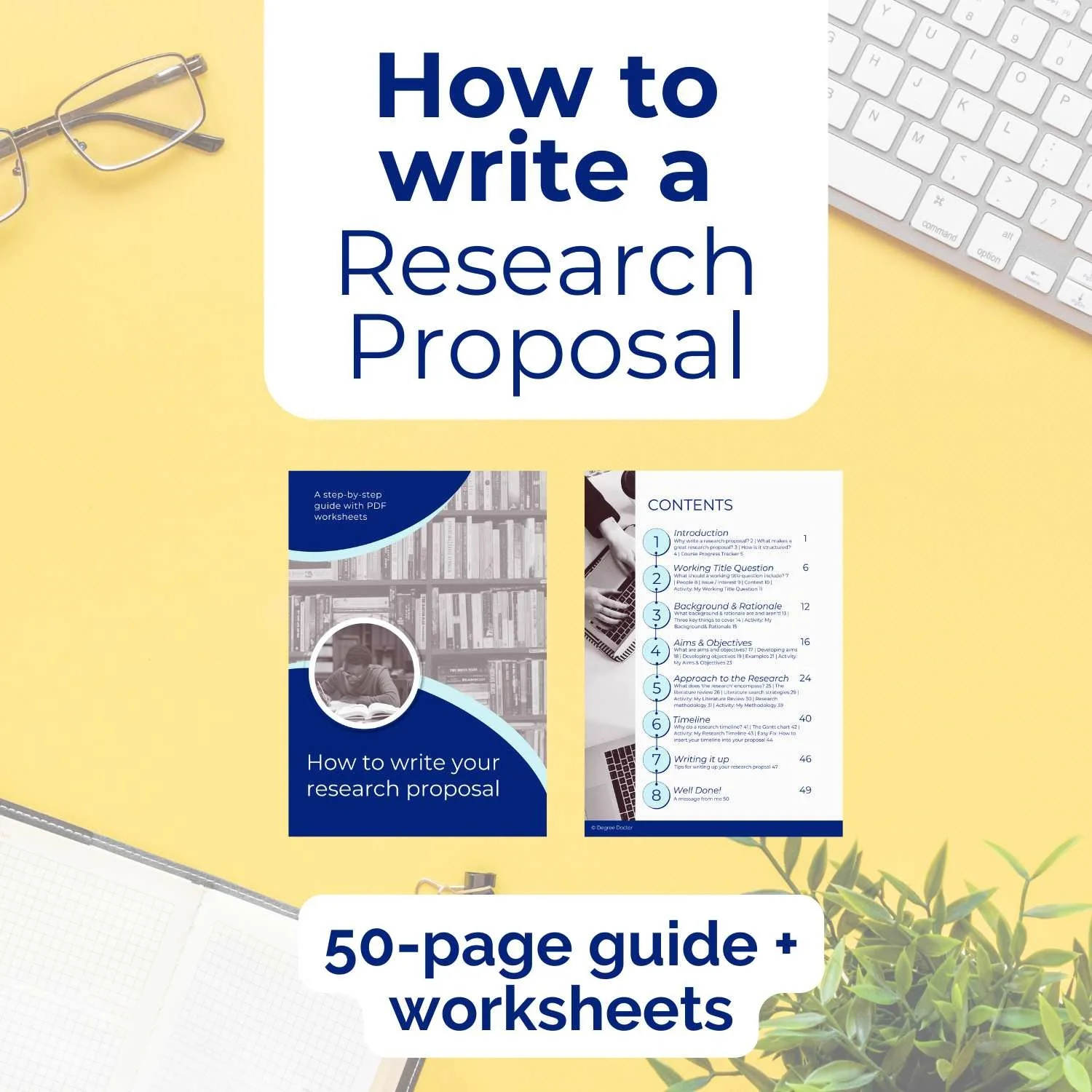Writing a PhD research proposal? Avoid these 3 common mistakes!
Over the course of my 20-year career as an academic in UK universities, I've had the privilege of reviewing countless research proposals, especially those submitted for postgraduate and doctoral programs. Throughout this journey, I've come across proposals that range from brilliant to forgettable. Today, I want to help you steer clear of the most common pitfalls that can turn your research proposal into one that fades into obscurity.
Mistake 1: An Unfocused Title
One of the most glaring mistakes I've noticed is a lack of specificity in the title. Many research proposals suffer from overly broad titles that fail to captivate the reader's attention. These titles often feel tired and unoriginal. To make your title stand out, consider asking yourself three crucial questions: who, where, and why.
Let's take an example: "Queer people's experiences of workplace bullying." By narrowing down your focus to specific queer identities, age groups, career stages, and geographic locations, you could transform this title into something more engaging and unique, like “Queer people’s experiences of workplace bullying during part-time employment in the leisure industry during their college years”.
The key takeaway here is to be confident and decisive when choosing your title. Your supervisors expect you to have a deep understanding of your field and the existing literature, so don’t be afraid to be super specific!
Mistake 2: Vague Sample Description
Another common pitfall in research proposals is a lack of clarity regarding the sample. While many proposals mention their target group, they often omit essential details about inclusion/exclusion criteria, sample size, and recruitment strategies. It's crucial to provide a clear explanation of how you plan to access your sample.
Access, whether it involves participants or materials, is a critical aspect of evaluating the feasibility of your research. Moreover, you should anticipate and address any challenges related to accessing your chosen sample, such as approval processes or contacting gatekeepers. As a graduate student, you're expected to take the lead in resolving these issues, with guidance from your supervisors. Avoid assuming that they will handle it for you!
Mistake 3: Lackluster Project Timeline
A lackluster project timeline can significantly undermine your research proposal. Many applicants provide rudimentary timelines that fail to reflect the complex and non-linear nature of the research process. Invest time in creating a well-thought-out timeline.
An effective timeline should illustrate how various research activities overlap and intertwine, acknowledging the fluidity of the research process. It should encompass everything from the initial literature review to the final submission, acknowledging that you will be revisiting chapters like the Introduction and Literature Review throughout the lifespan of your research.
Conclusion
Crafting a standout research proposal is crucial for securing a place on a graduate or doctoral program. By avoiding these common pitfalls – a vague title, an unclear sample description, and a lackluster project timeline – you can significantly enhance the quality and impact of your proposal.
I hope this guidance serves as a valuable resource for you on your journey toward academic success. Remember to be meticulous in your approach, and may your research proposal shine brightly amid the sea of forgettable ones. Your dedication and attention to detail will set you apart in the competitive world of academia. Good luck!
Need step-by-step help with your proposal?
If you want me to walk you through the process of preparing your research proposal, check out my self-study guide and planner pack, details below!
